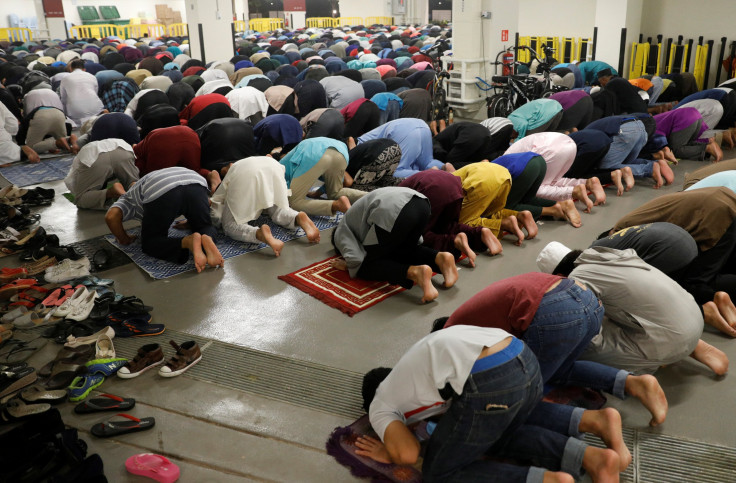Fasting During Ramadan And 5 Things To Know About A Day In The Islamic Month


This question originally appeared on Quora. Answer by Muntasir Wahed.
Fasting during Ramadan in Bangladesh is a very interesting experience, specially for a child, one that I will cherish forever.
Taraweeh
It all starts with the Taraweeh. It’s a very long Salat (prayer), which continues for around two hours. Most of the people say this prayer at mosques. It becomes a golden opportunity for the young guys of the area. They barely say the prayer for half an hour, then run out of the mosque. They gossip, and gossip and and gossip, while their moms keep thinking they are out there at the mosque! It’s a great relief for them from the daily routine.
Dinner
Then comes the struggle of denying dinner. “Mom, come on! We are gonna eat again at 3 am. What’s the point of having dinner!” But the moms will never understand. You are a child, your argument is invalid. Over and out.
Seheri (Sahoor)
Then you go to sleep, and your eyes are barely closed when you hear the people outside screaming! Not really, they don’t scream. They sing in chorus to wake you up. There’s no instruments, but it’s kinda beautiful and never fails to make you feel nostalgic.
At the dining table, you again struggle with your mom, as she continues to force more and more food on your plate! “Mom, I can’t simply eat all foods in a single go.” Again, your argument is invalid. Then you face a never ending race to drink as much water as you can!
A Day During Ramadan
During the day, you continue doing all the boring stuff. However there are some differences.
- You see less people smoking around you, which is great for me, because smoke triggers my migraine!
- All the restaurants and tongs (tea-carts) are covered with veil. It’s a great amusement when you catch someone you know drinking tea there! “Ammuke bole dibo!” (“I will tell mom”)
- When you see someone drinking water, you can’t help but stare with a mere-felbo (I will kill you) look.
- You stand under the shower for one and a half hour, only getting out when your mom starts yelling.
- Voila! All of a sudden your urine turns yellow. And it huuuuuuurrrrrrrts.
- Sometimes you send food to your neighbours and relatives. Sometimes you also invite them over to your place!
Iftar
And finally it’s iftar time. You sit around the foods with all your family. I tell you, this is one of the most beautiful experience you can ever have. But wait! The time has not yet come. You wait for the siren with your stomach burning. And when you hear it, it is the most beautiful sound ever. And the food is delicious!
Then you probably watch TV for a while. There’s this legendary lady, Keka Ferdousi, who can cook anything.
“Aaj amra radhbo gorur shing diye vutta vuna” (Today we will cook smoked corns with cow’s horn.) Well not really. But she has been subject to a prominent meme in our country. :D
Then you go to Taraweeh and the cycle repeats.
As the Eid comes closer, you sometimes go shopping. You buy new clothes for all your family. Oh, boy, the thrill of getting all those gifts!
One of the most amazing experience, however, is looking out for the new moon. Children of the whole area used to gather in a field to watch out for the moon.
And they celebrate very wildly when they confirm that the next day is indeed the Eid. And all the tv channels go crazy with the same old song!
Ramjan er oi rojar shese elo khushir Eid! (The Eid finally comes after a month of Ramadan)
Damn I am listening this now on repeat.
I will not talk in terms of religion here. But Ramadan has provided me with some important education.
- It has taught me how it is like to stay hungry. I can somewhat feel the pain that many people have to go through.
- It has taught me to abstain from things even when I have the chance to indulge. I haven’t drank cold drinks for about two years. I often take long breaks from social media. These are all part of the learning I get from Ramadan.
- Ramadan has another important teaching, that is about sharing. In Bangladesh, we share foods with all our neighbors and relatives. We also share food and money with the poor people.





















